One of my best friends in junior high and high school was a kid named Greg Cohen. He was a water polo player, not much of a food person, but one day he skipped school and talked his mom into making latkes with him. He brought them to class and we gobbled them up. That was the first Jewish food I tasted. Aside from occasionally eating at Jewish delis and one time working a Passover catering event with my friend Kathy, I know very little about Jewish foodways. I've seen the Kosher symbol on food products but never paid them too much attention.
But a couple years ago, when visiting Cuong Pham at his Red Boat facilities on Phu Quoc island, he told me about a kosher fish sauce project. He'd contacted a rabbi in Saigon to certify Red Boat's nuoc mam. I was totally stoked. Jewish Chinese food is plausible, especially given the history of Jews in China but also the popularity of "Kosher Chinese". Maybe Kosher Vietnamese is on the horizon? If it were to happen, the fish sauce had to be pure and blessed, certified kosher.
What was the interest all about? Who does this? What does kosher fish sauce taste like? I told Cuong that I was interested in the concept on many levels. Last year, he offered me the opportunity to find out more. I just had to travel halfway around the world to get my answers. The rabbi was coming and we'd do a fish sauce barrel tasting. Cuong had invited a bunch of people from the States.
I have visited fish sauce production facilities before but didn't know what to expect once we arrived at Red Boat last October. Over drinks with author Michelle Tam of Nom Nom Paleo, food explorer Kyle Hildebrand, and their respective partners, I was advised that as a woman, I was not allowed to touch the rabbi when I met him. What was the big deal? I'm Asian and we're not touchy people anyway. There were chefs on the trip as well as videographers, thus a lot of distraction.
The day Rabbi Menachem Hartman arrived, all the distractions fell to the wayside. I'd waited a good year and a half to meet the man. There he was, monitoring and supervising a bevy of Vietnamese women as they sorted fish that passed along on a conveyor belt. It was a surreal version of the I Love Lucy episode at the candy factory, but we were at a fish sauce factory. He was dressed in perfectly pressed clothing in tropical humidity of about 90F.
Rabbi Hartman explained that a while back, he moved his family to Vietnam when he heard that there was a need for a Chabad in Saigon (now Ho Chi Minh City). What are people of Jewish faith doing in Vietnam?
"They are in Vietnam for business," the rabbi explained. There are a few Vietnamese Jews too, who have intermarried. The Chabad center in Saigon is a community center that offers weekly Shabbat meals to Jews who live locally or are passing through. The center prepares traditional foods (they recently started a bagel program, Rabbi Hartman mentioned) but also wanted to use local ingredients like rice noodles and rice paper to make Vietnamese food.
Red Boat was the first Vietnamese fish sauce producer to ask for Kosher certification. What did that entail? The rabbi checks on production practices to make sure that the barrels are clean and untainted. When fish arrive and are unloaded, instead of being directly transported from the dock to the barrels, they are placed on a conveyor belt and sorted by hand.
The ladies, and sometimes the Rabbi too, make sure that only fin-fish are employed in the production of Red Boat fish sauce. Crab, shrimp and other shellfish are plucked off the conveyor belt and deposited in baskets. The useable fish is then transported and dumped into 10-foot (3-meter) tall barrels.
It's about maintaining cleanliness, Rabbi Hartman explained. Ensuring quality and purity in food production is important to his faith. (We should all make that as part of our faiths.)
Most of the fish used for Red Boat's product is the small, silvery ca com anchovy. They are as a slender pinkie finger. If the fishermen see a large fish, it's considered bycatch and they remove it from the harvest and make food with it. (On my 2014 visit, the Red Boat crew made several great meals from a single 6-kilo mackerel.)
When Cuong decides to inspect a kosher fish sauce barrel during the aging process, the rabbi or another certification official must be present. The fish sauce, Rabbi Hartman explained, needs to be in a controlled situation during the fermentation cycle. Contamination would ruin things.
During the past year, the Rabbi has regularly arrived on the island and brought his own food. This time, because the first batch of kosher fish sauce was ready, he asked if the kitchen had something for him to eat. The Viet staff members were happily surprised and had to hustle for some rice and vegetables.
What did the fish sauce taste like? Cuong organized a tasting of about 13 different bottles, some were single barrels while others had been blended. There were chefs involved in the tasting, Jenn Louis, Sang Yoon, and Chris Consentino, as well as myself, Michelle and Kyle. The single barrel stuff was sometimes off the charts and intense, minerally. It depends on what was in the barrel -- which is why fish sauce is blended like wine. Chris likened one to aged prosciutto. Sang and I imagined another full-bodied one in a lusty Thai dipping sauce.
Cuong revealed that the one that was wonderfully clean tasting was the kosher fish sauce. That was absolutely fascinating. The kosher process yielded a delicate tasting product. It was lightweight cotton, not linen, denim, or velvet. It was an incredible lesson for me. I do not keep kosher but trying the fish sauce was about experiencing the spectrum of fish sauce -- how it varies in color, flavor, and thickness and how it crosses cultural borders.
After the tasting, I circled back to Rabbi Hartman. Cleanliness and purity have quite an impact on nuoc mam, I told him. Then he asked me about making kosher Vietnamese food. That will have to be another conversation, Rabbi.
Red Boat's kosher fish sauce is available at Kalustyan's in New York and other retailers. You may also order it online at the Red Boat store. For Jews keeping kosher, it's great for adding umami depth to chopped liver (I call for some in the gateway chicken liver pate recipe on page 46 of the Banh Mi Handbook). For those who are new to fish sauce, it may be a nice gateway since it has friendly flavor and excellent quality.
I've written about non-traditional uses for fish sauce before so maybe this will give me incentive to think on it some more. If you have ideas or experiences to share, please do!
Related post on fish sauce:


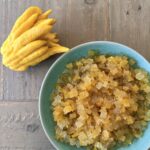





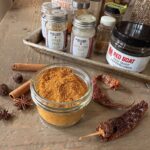
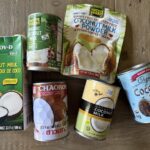
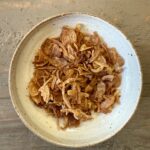
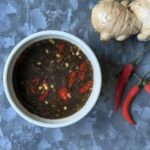

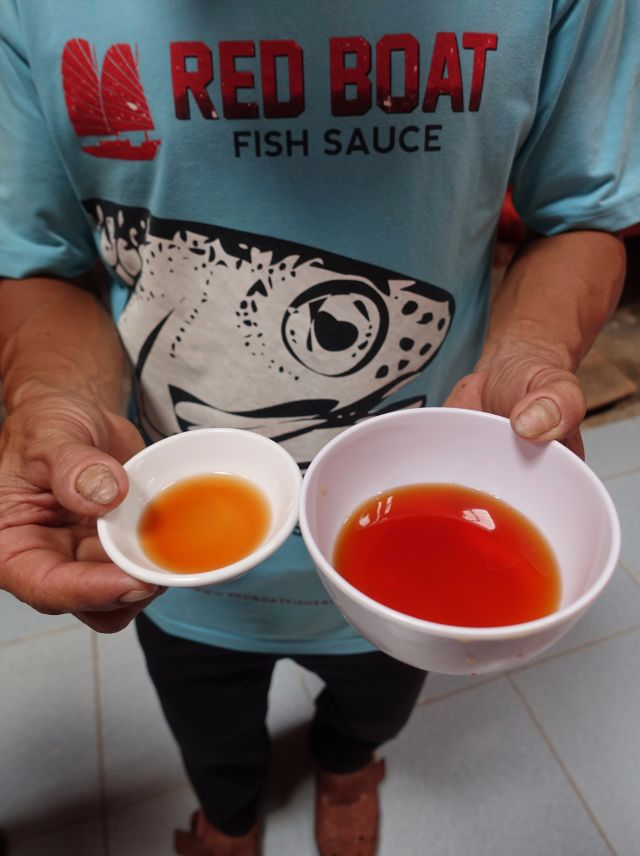
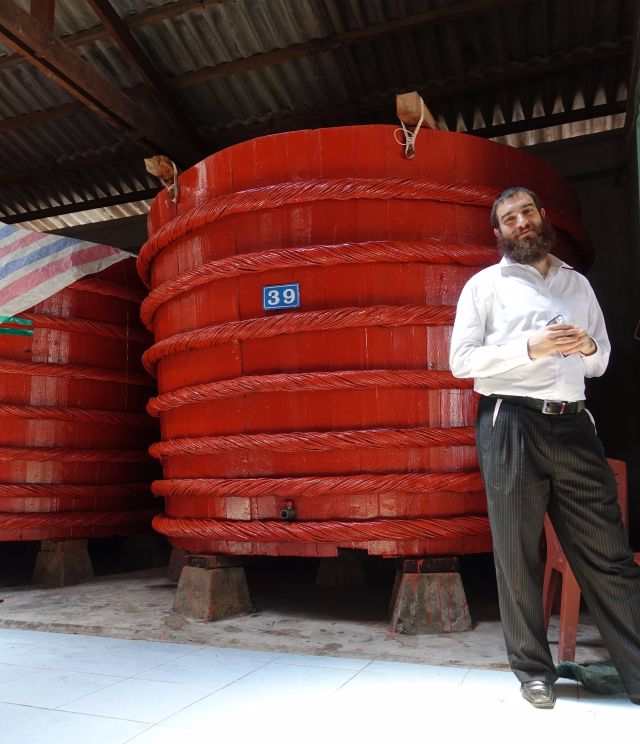
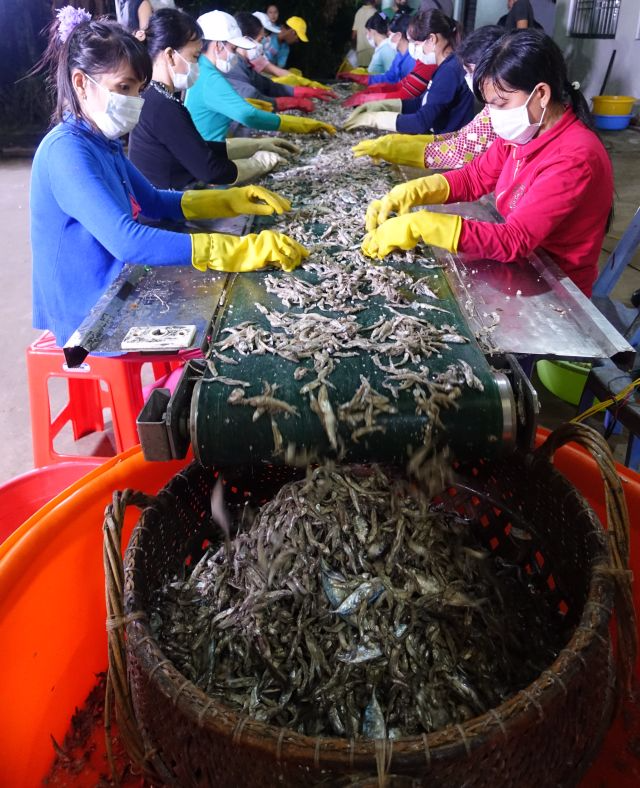

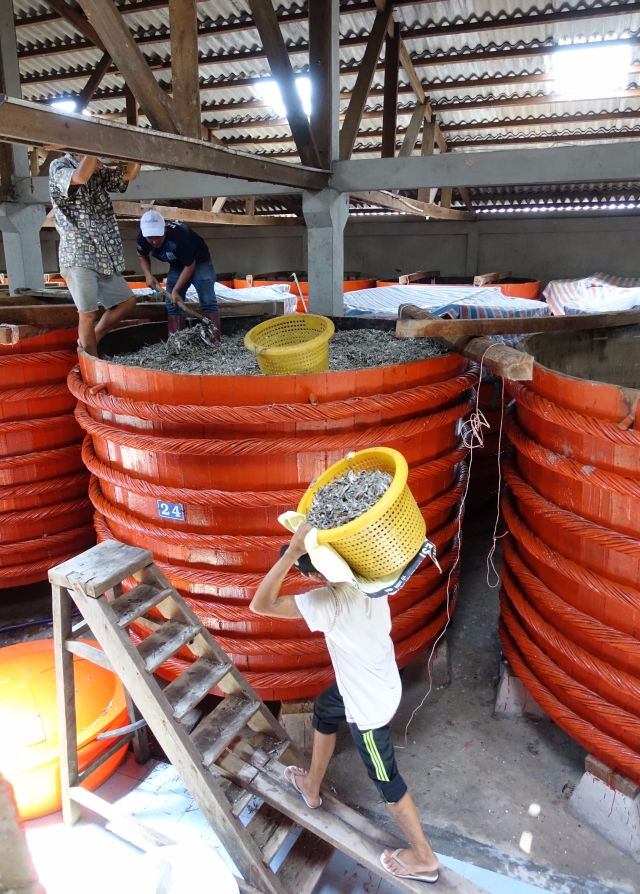
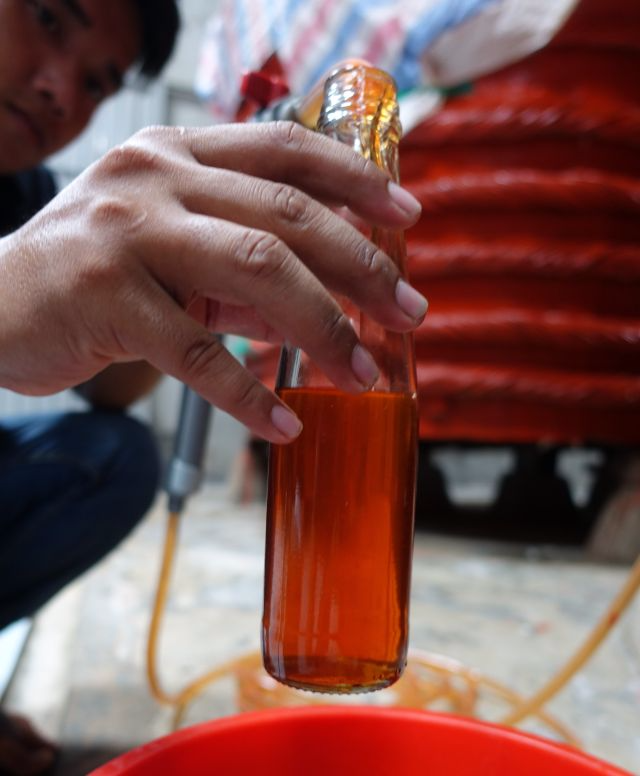
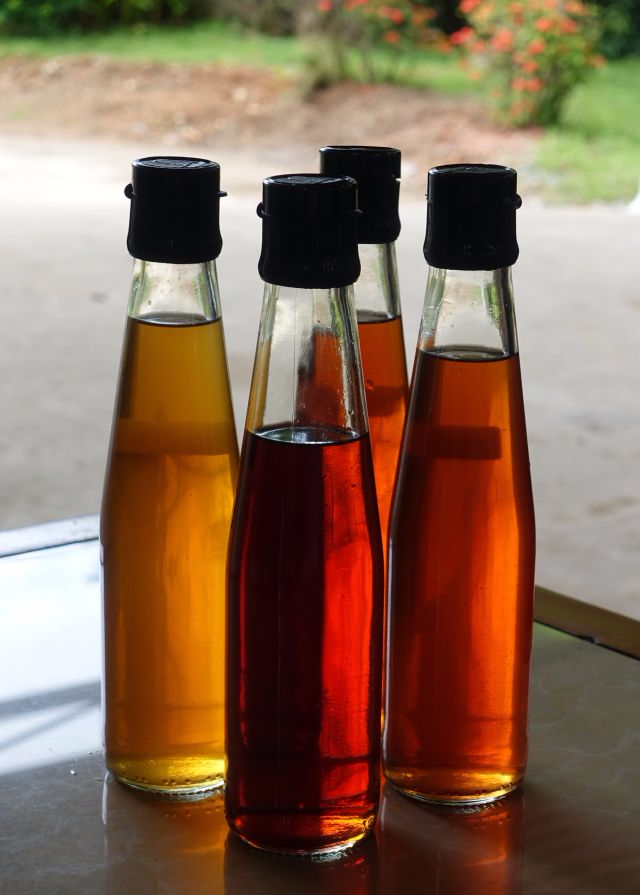
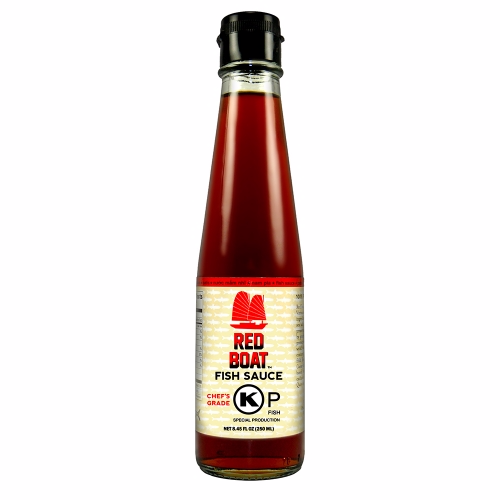




Luanly.com says
We are a distributor of traditional blends for more than 100 years. Type of fish sauce produced in the south
luanly.com
Curly Sue says
Am so happy to have found your sauce! Thank you for the effort.
Andrea Nguyen says
You're welcome!
Elizabeth Davis says
Interestingly, for those who keep kosher, we cannot use fish sauce with meat or chicken. Kosher laws prohibit eating fish and meat together (in the same dish or recipe or even on the same plate). I’ve bought a bottle of this but haven’t used it yet. I can only use it in vegetarian cooking. I be curious to find a kosher vegan substitute that would work for cooking chicken and meat.
Andrea Nguyen says
I've not seen a kosher vegan sub for kosher fish sauce. Sorry. One can hope.